This Indiana High School is Closing the College Access Gap
Years ago, leaders from across Indiana came together to solve a big college access gap. The solution? Purdue Polytechnic High School, an XQ school in Indianapolis, that just graduated its first class.
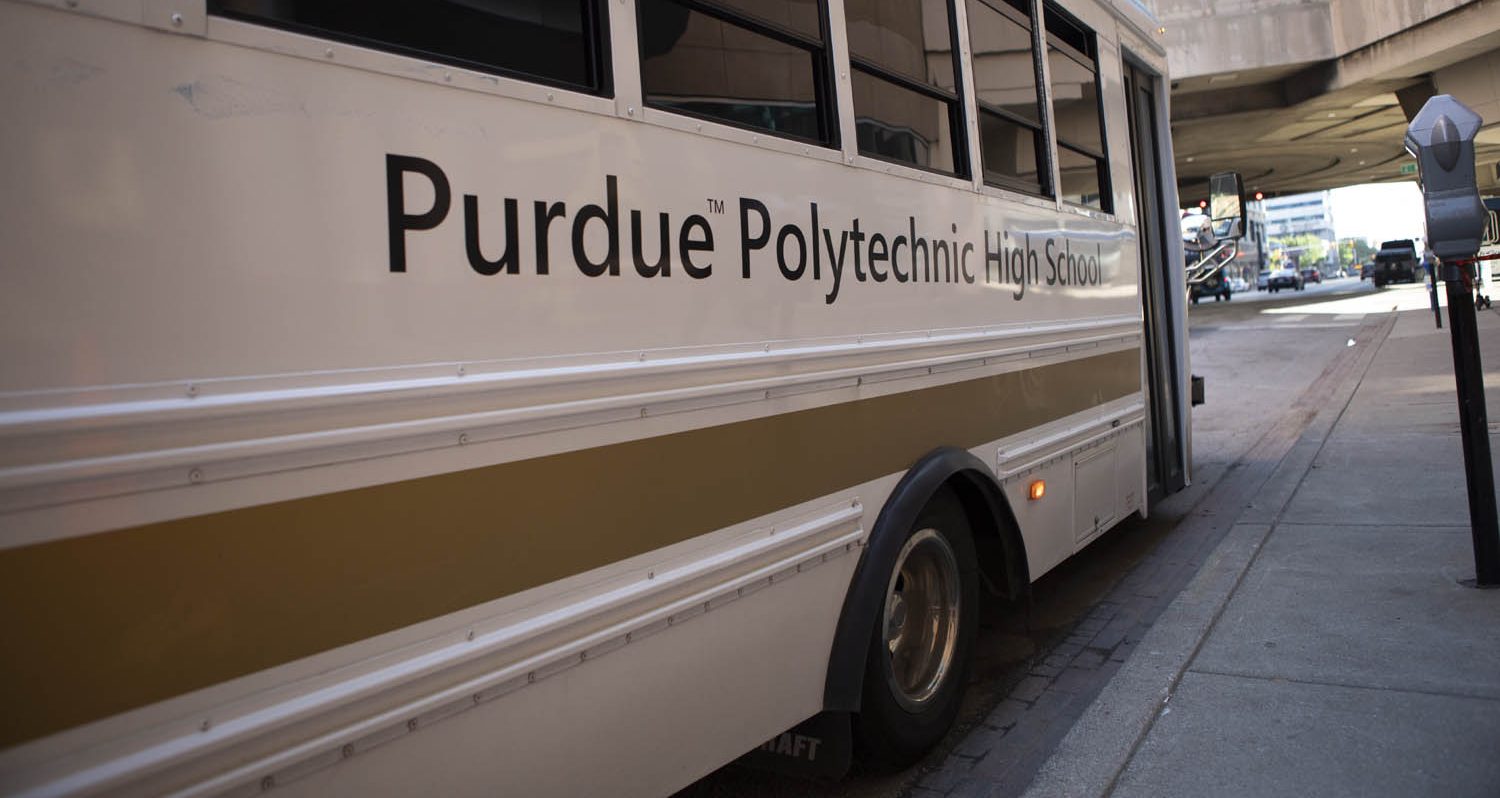
The story of Purdue Polytechnic High School, an XQ School in Indianapolis, is a tale of statewide commitment and of student-driven transformation.
Since it opened four years ago, the school evolved, adjusted, and adapted to serve its students better while staying true to its original mission—to prepare underrepresented students for college and high-paying careers in science and technology. And as the STEM-focused charter high school celebrates its first class of graduates, it’s done all that and more. It’s helped create a class of young people who are motivated, independent thinkers poised to tackle the challenges of the 21st century.
In a graduating class of 120 students, 48 were accepted to Purdue University—more than four times the number of students of color from all of Indianapolis who typically enroll at Purdue University.
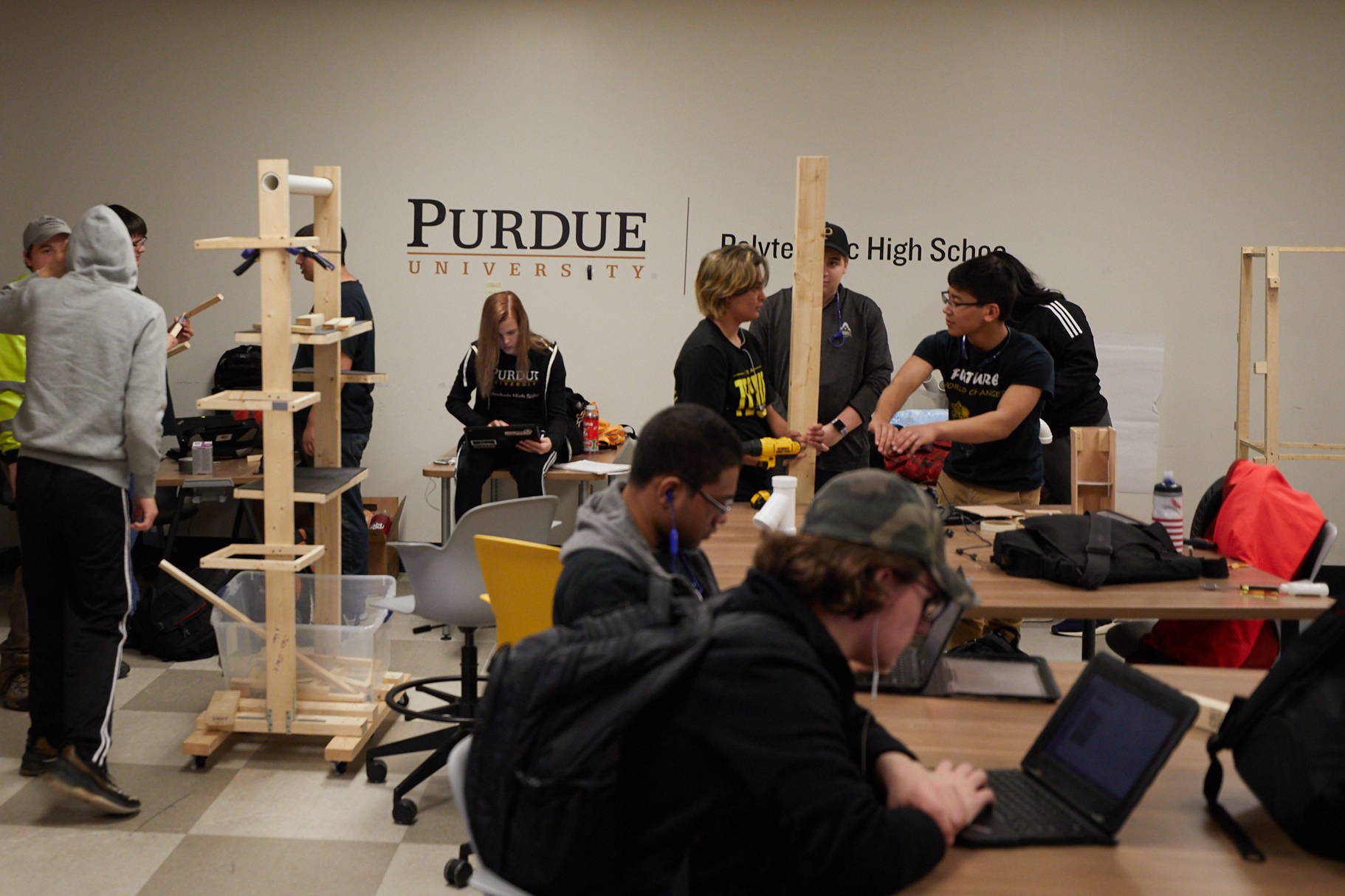
In other words, the whole mission of PPHS is working. Placing equity at the core of its mission has proven to be a successful formula for students, staff, and the entire school community, and a great way to diversify fields where people of color are vastly underrepresented.
“We started out as a theory, an idea, an experiment,” explained co-founder and Head of School Scott Bess. “But what we learned is that there’s no straight line to success. We all learned together, as a community. To reach this point, together, it’s really an emotional experience.”
Reaching and Exceeding Academic Milestones
Purdue opened in fall 2017 as a partnership with state education leaders and Purdue University, as a way to boost academic achievement and college preparedness among Black, Latinx, and low-income students. Since then, the school has expanded to 500 students and settled into an award-winning permanent campus. The school staff and students at PPHS boast the highest rate of underrepresented students passing state standardized English Language Arts and math tests among all students in Indianapolis public schools.
But for some students, test scores and college acceptance are only part of the picture. Purdue Polytechnic taught them something else they say is even more valuable: independence and self-agency. One of the school’s innovations is a shift in the traditional teacher-to-student model to one of “coach” and self-directed learners. This changes the dynamic of how students learn, as well as the identity and confidence of learners.
Kayla, a senior, said the flexible scheduling and focus on student voice helped her become more self-confident as a student, and a person.
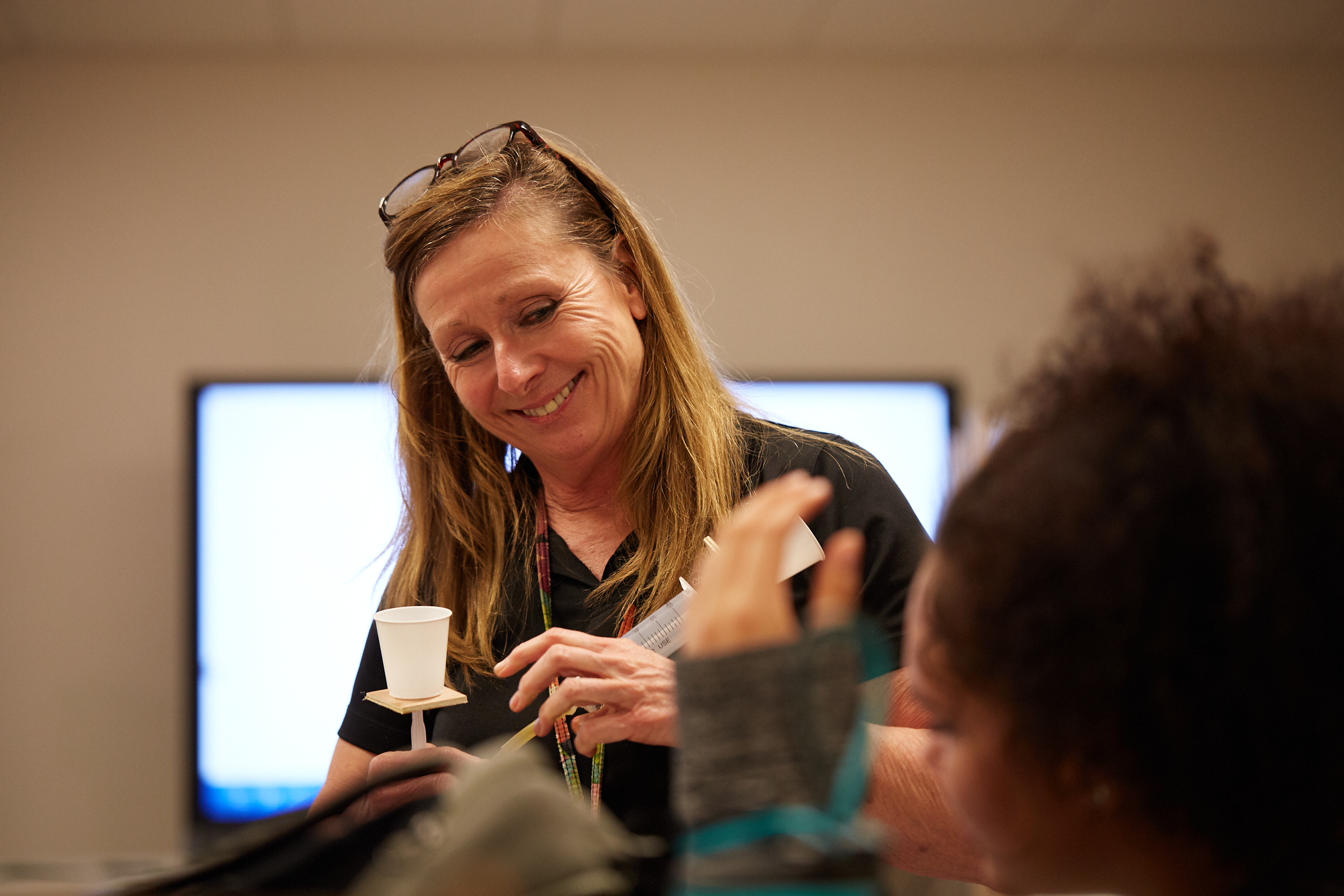
“We’re responsible for our own work,” she said. “We get a lot of one-on-one support, but also a lot of time to work independently at our own pace. I really liked that.”
The flexibility allowed Kayla to pursue projects that weren’t necessarily focused on science and technology, but were topics that interested her. Recently, she did a project titled “Black Wisdom,” shedding light on Black women in history who haven’t received the recognition they deserve, such as Congresswoman and presidential candidate Shirley Chisholm and Claudette Colvin, a teenager in Montgomery, Ala., who refused to give up her bus seat to a White passenger nine months before Rosa Parks made history for the same act. (Colvin never received her due in part because she was a teenager at the time.)
Kayla’s success at Purdue extended far beyond the classroom. She helped found the school’s Black Student Union, served as varsity cheer captain, helped plan Homecoming activities, served in student government and was named to the National Honor Society. These activities helped her apply leadership skills she learned in the classroom to real-life scenarios, enriching the campus climate for all students and setting a positive precedent for future Purdue classes.
“I definitely feel I am prepared for college,” she said. “Being here helped me learn how to be a leader. … It made me grow into the person I am.”
Another core innovation is experiential teaching, involving collaborative, project-based learning alongside peers, coaches (teachers), and industry partners. This prepares each student to be equipped to pursue their own projects by intentionally developing the mindsets, skills, and competencies using the school’s Design Process.
A School Where You Grow, Learn, and Adapt
DeAnthony said that Purdue Polytechnic’s emphasis on self-directed learning propelled him to succeed academically and personally. Thanks to the school’s individualized learning approach, DeAnthony was able to combine his interests in technology, music and writing to create projects that were meaningful to him.
One project was a collaboration with a company called Corteva. DeAnthony and his classmates were tasked with envisioning the planet with 9.5 billion people living on it. They conducted research, interviewed people, submitted evidence and gave feedback.
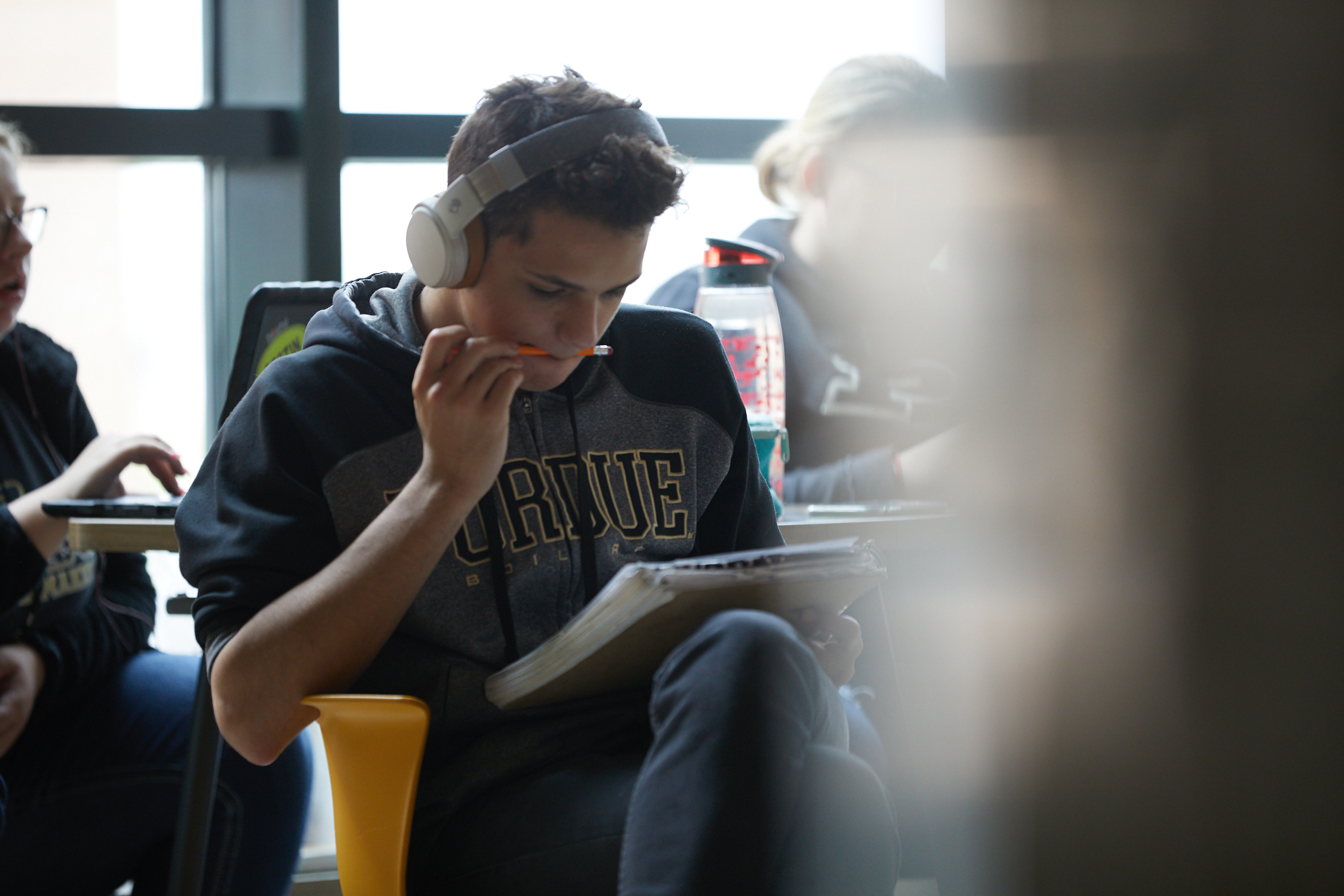
For another project, DeAnthony produced and performed in a Christmas concert at the senior facility where he lives with his grandmother. He sang holiday and R&B classics for the residents, “to give back to this wonderful community.”
Another project allowed him to write his own Dungeons and Dragons game storyline.
He also started a choir at Purdue Polytechnic, called the “Poly Notes,” served in student government, and in the 11th grade won a statewide poetry competition. His poem, “Broken Expectations,” which was among the winners of the National Endowment for the Arts’ Poetry Ourselves competition, is about resilience and overcoming adversity. Read his poem here.
With a 3.95 grade point average, DeAnthony won a slew of scholarships to attend Purdue University in the fall, where he plans to study audio engineering and technology. Ultimately, he’d like to open his own music studio.
“Purdue is really good at helping you realize your strengths and weaknesses and helping you to build upon your weaknesses, not just acknowledge them as weaknesses and say, ‘Well I can’t do anything about it.’ They keep helping you and pushing you to at least try and get better at the things that you think you’re not so good at,” he shared with XQ last year.
Purdue Polytechnic helps students understand that “failing forward” is part of the learning process. This reframing of failure helps students succeed past perceived limitations. For instance, freshman Gregoire embraced learning from his mistakes in his STEM-focused curriculum. Before beginning his first year at Purdue, Gregoire did not have a great familiarity with technology. You see, Gregoire spent the first 13 years of his life in the the Nyarugusu refugee camp in Tanzania. After one year in Purdue’s project-based curriculum, Asunami will compete in the VEX Robotics World Championship.
Purdue Polytechnic teachers gave him the freedom and support to pursue his interests, while learning time-management and leadership skills along the way, he said. Purdue’s flexible and personalized learning environment enables students to work with their coaches and fellow students to “set goals, review progress, discuss current events, and plan their learning activities to build their own schedules for the week. Students have ownership of their learning schedule, seek mentoring and support when they need it, and learn how to manage their workload and schedules,” according to the school’s website.
“I guess the biggest lesson I learned here is that if something doesn’t work out, it’s OK,” DeAnthony said. “Not everything you try is going to work the first time. You have to grow, learn, adapt. That’s how you improve.”
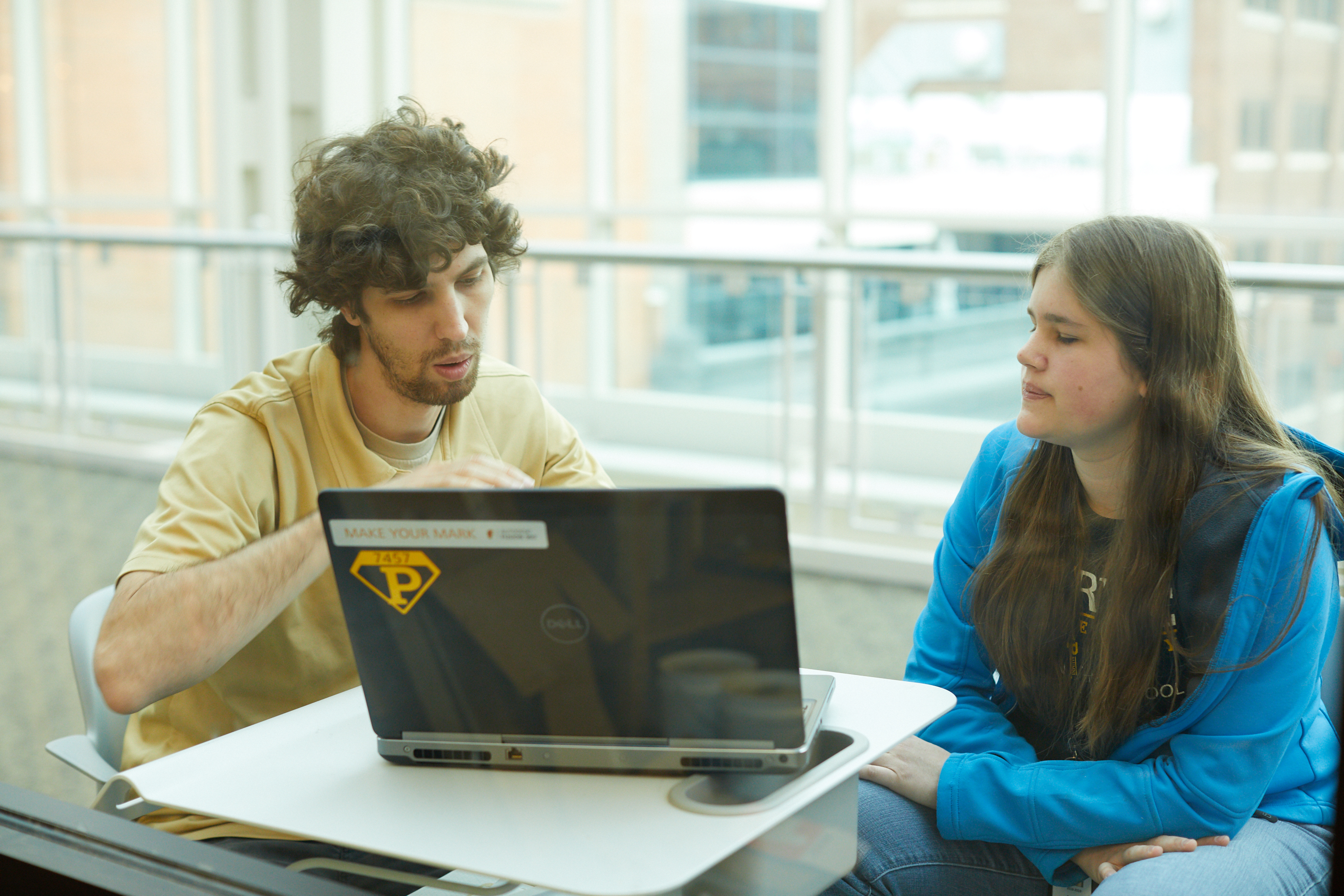
He didn’t know what to expect when he chose Purdue Polytechnic four years ago. All he knew was that he was bored in his regular classes, and wanted a challenge.
“Learning here is self-paced. The teachers are there if you need them, but they’re not a crutch. It’s so encouraging and inspiring to know that learning is in your own hands,” he said. “This school is completely different from other schools. If I had gone to a different school, would I have gotten to where I am now? The answer is definitely no.”
Building Upon an Innovative and Inspiring Legacy
Students weren’t the only ones who weren’t sure what to expect when the school opened, Bess, the school head, said. Teachers and school leaders also knew that “when you give students a voice and self-agency, there’s no putting the genie back in the bottle. We weren’t sure how it would play out,” he said.
But with plenty of patience, helpful input from students and families and staff, and a willingness to listen, experiment, and make adjustments, the school’s innovative design formula succeeded. Nearly all of the school’s seniors learned valuable skills in science, math and technology that could lead to high-paying jobs, and are headed to college to pursue their dreams. Their efforts will help diversify a field where Black and Latinx (as well as women) workers are sorely underrepresented. And every student, regardless of whether they choose to pursue a career in STEM, learned how to think critically and independently, advocate for themselves, and pursue their passions with self-confidence.
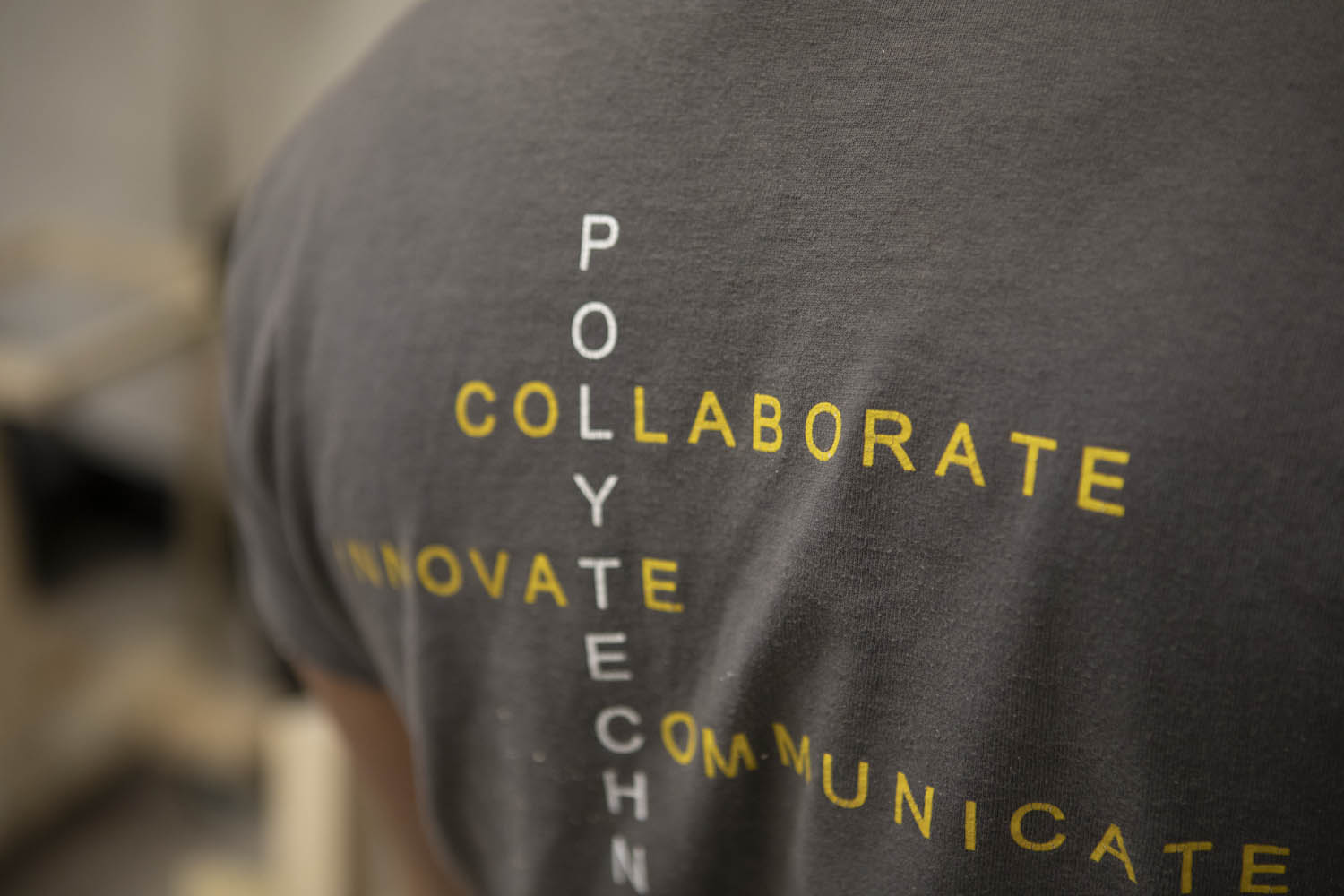
“I am majorly proud of our students. They made this happen,” Bess said. “Now our focus is on what comes next. We’ve shown you can do high school differently and make it work—now, we want to work on our legacy.”
Principal Shatoya Ward told an Indianapolis TV reporter that she’s hopeful for the future of the school, and is inspired by her students’ success.
“I’m really excited for their future. This is a class of bright students and we feel like we’ve set them up for success,” Ward said. “That is my life mission … My life mission is about providing access and opportunities for those who may have not had it. What I love about our graduates, I was on the stage for rehearsal and I looked out on the graduating class and I was like, when you say you have a diverse school you see it in the population of our students. I looked out and all I could see was the diversity of our students that were sitting there and ready to go out into the world. It made my heart feel so warm.”
Purdue University President and former Indiana governor Mitch Daniels echoed Ward’s praise for the high school’s first graduating class and her hope for the future.
“It’s a Boilermaker thing to do to try and do something new and try to innovate and these folks have done that. We also believe you have to prove yourself,” said Daniels, as reported by Fox 59 in Indianapolis. “The achievement of these young people in this first class does that.
“First of what will be many, many other commencements where young people who may not have had a chance to come to our university have now proven that they are ready.”
Learn more about Purdue Polytechnic High School and all the XQ Schools at: xqstaging.wpengine.com/schools









